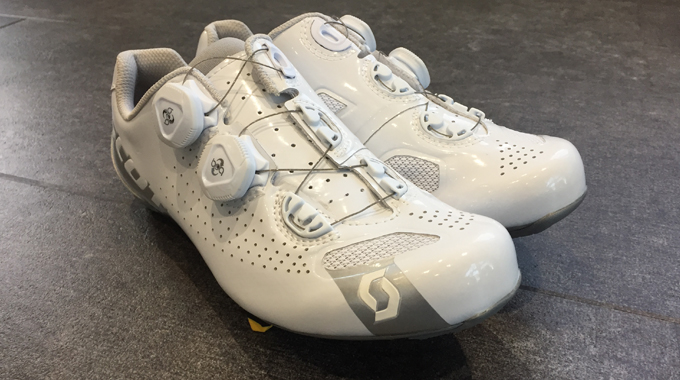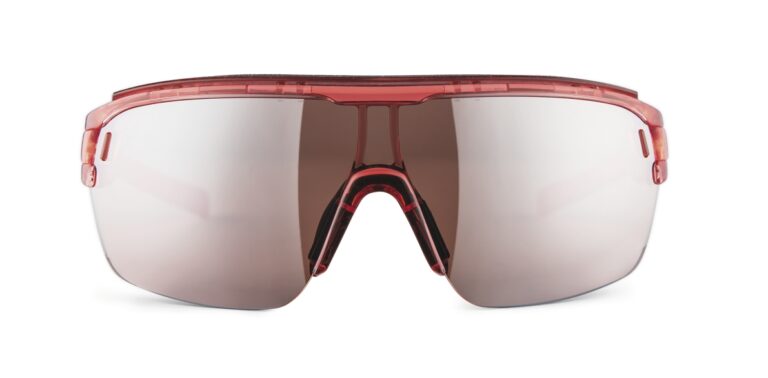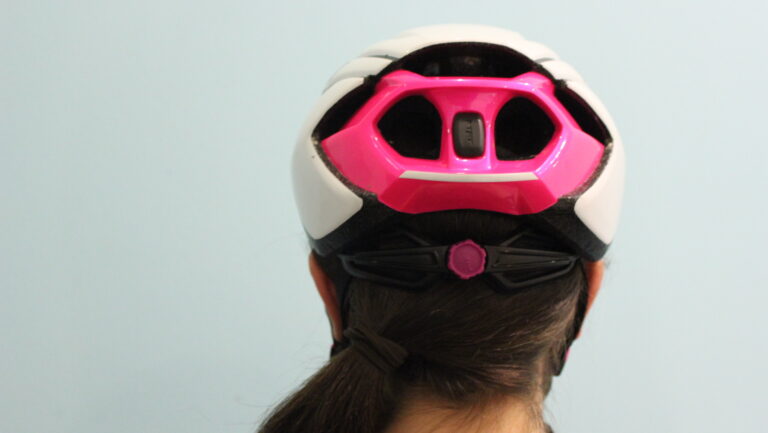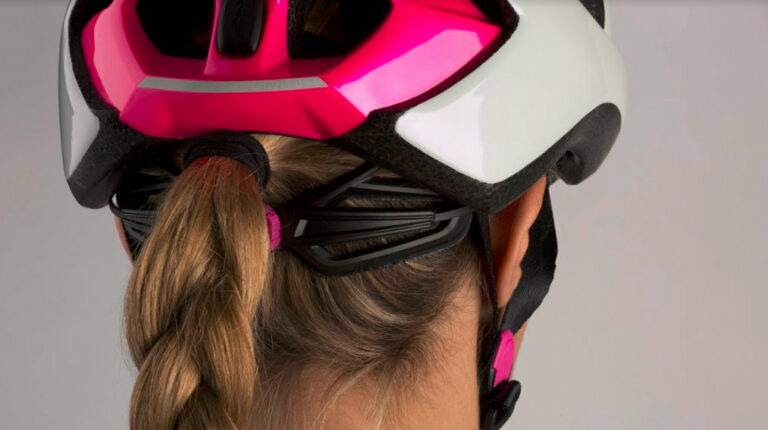If, like most riders, you’ve bought a ready built bike, the number one upgrade is almost always a set of wheels. Most built bikes come with wheels that do the job, but replacing them with something higher spec can absolutely revolutionise the ride. Enter: the Fast Forward F3R Full Carbon Clincher wheelset.
Wheelsets can be divided into three distinct groups: resilient sets, with sturdy rims and lots of spokes to add strength, aero wheelsets with wide rims and few spoke to cheat the wind. Finally, lightweight sets designed to drop the weight at the point where it matters the most: the constantly revolving wheel. The Fast Forward F3R set falls into this final category, coming in at 1395grams.
Buying Guide: Road Bike Wheels
Fast Forward are based in the Netherlands, they make high quality hand-built wheels, often at a price that sits well when compared with the giants of the market. Every set comes with a two year warranty, and the promise of replacement rims for half price should you come across any bad luck.
The features of the Fast Forward F3R Full Carbon Clincher DT240 Wheelset
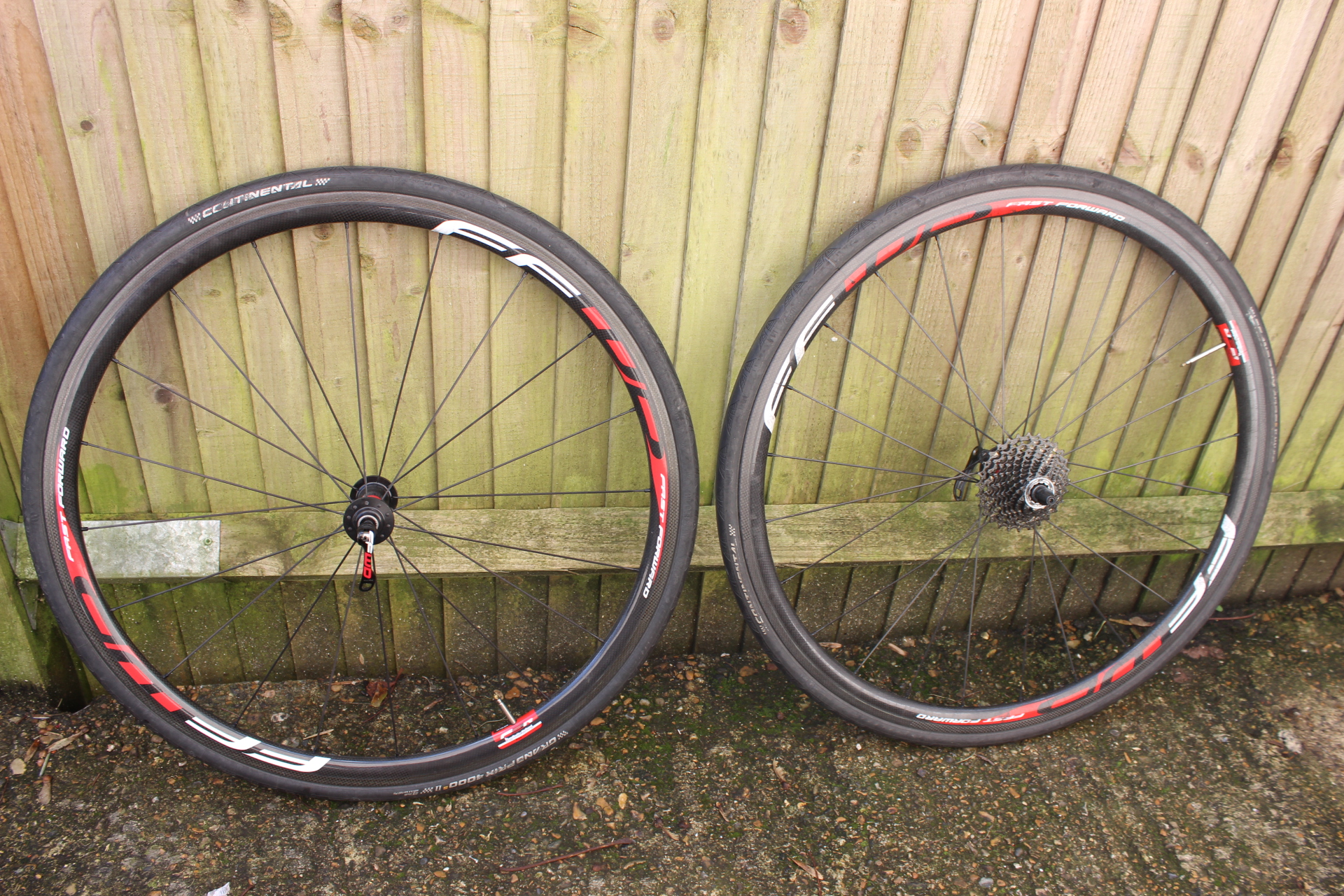
These full carbon clincher rims come with 20 straight laced Sapim CX-Ray/DT Aerolite spokes at the front, and 24 radial spokes at the rear – where more weight is put through the bike. This pair is fitted around DT Swiss 240 hubs, which originally came from the brand’s expert MTB hubs and are designed to withstand miles of riding without the need for servicing, thanks to closed bearing sealing.
At 1395 grams, opting for a pair of these would significantly drop the weight of your overall bike – and a reduction in mass at the wheel can be highly valuable in terms of seconds dropped.
The carbon rim itself uses predominantly High Tensile TC-35 carbon, which is said to be strong enough to cope with the tough life a wheel often has ahead of it. Two other grades of carbon feature in the lay-up, with the aim of providing various different angles to create a uniform surface. Using several grades also offers some protection in the case of an ‘incident’ – if one is damaged, you’ll be more likely to make it home with the rim in one piece.
A stiffer rim usually makes for greatly improved handling, and the Fast Forward F3Rs guided me brilliantly into the corners and delivered my safely on UK descents without a care. Carbon does of course iron out more road bumps than the standard option – alloy – and the rims did feel smooth, even over bumpy country lanes. They were also noticeably sprightly – adding a great spring to my stride on quick sprints, especially uphill.
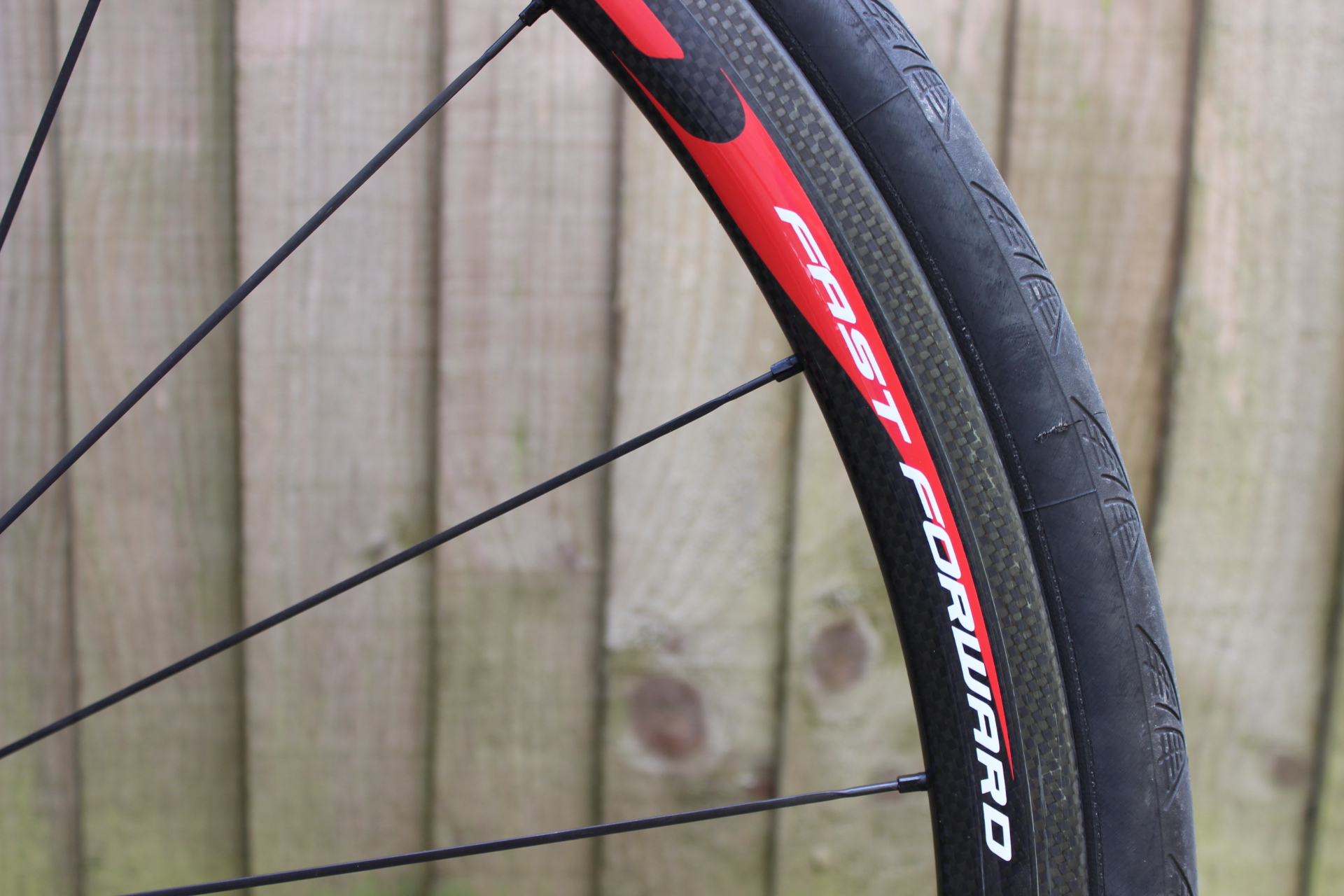
Carbon is strong, comfortable and lightweight – and it’s usually considered that its downfall as a rim material is in braking. Firstly, carbon friendly brake pads must be used without fail, these don’t bite quite like standard brake pads on aluminium rims. In addition, carbon can often overheat under braking, reducing efficiency dramatically – even delaminating and completely ruining a wheel if you’re not careful. To fix this common issue, Fast Forward have created an exclusive braking surface called ‘Confidence Brake Technology (CBT) 3H’. This mixes three different composites of copper and a layer with a High TG Resin, to enable heat reduction and much higher braking efficiency.
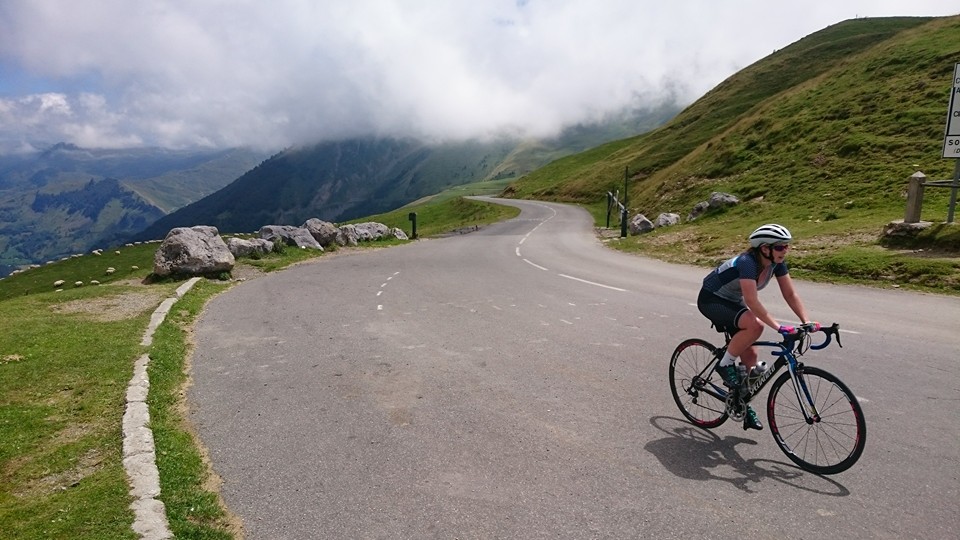
Riding these wheels in the UK – where descents are rarely over 10 minutes, I absolutely fell in love with them and I’d highly recommend them. Taking them to the Pyrenees, where descents can go on for 30 minutes plus, a little love was lost. I found that the wheels became hot, and more often than not the two guys I was riding with could hear me coming before I actually arrived at the bottom of the descent as I squealed my way to a halt. As embarrassing as it is to admit that to the world, I’m doing so in the interest of honesty. My criticism here isn’t really left at the door of the wheels – more my experience highlighted 1) my own need to improve my technique 2) that full carbon rims don’t suit everybody.
Best practice when targeting long and twisty descents is to brake adequately before corners (where necessary), removing pressure from the rims the rest of the time. My own method involves much more brake dragging or feathering – something that will undoubtedly cause almost any carbon rim to suffer. In a way, my desire to prevent the brakes from squealing actually forced me to work on my technique. In short: these rims brake excellently on short descents, and in the right hands would probably do the same elsewhere. I’d recommend any riders planning to invest in carbon rims learn how to use them before taking them to foreign countries – or stick with alloy.
Though these wheels don’t have a focus on promoting aerodynamics, they will of course be more wind-cheating than your average pair of stock bike specced wheels. The front spoke pattern, with just 20 straight-laced spokes, will create less drag than a typical radial design with 28 spokes (each one ready to catch the wind and channel it to slow you down). The 24 spokes at the rear offer a fairly high count for wheels of this calibre – and this will help to offer resilience. Though I was considerably more careful to weave around pot-holes on these wheels I felt they were resilient enough for someone of my weight. They do come with a weight limit of 100kg, which is worth bearing in mind for some riders.
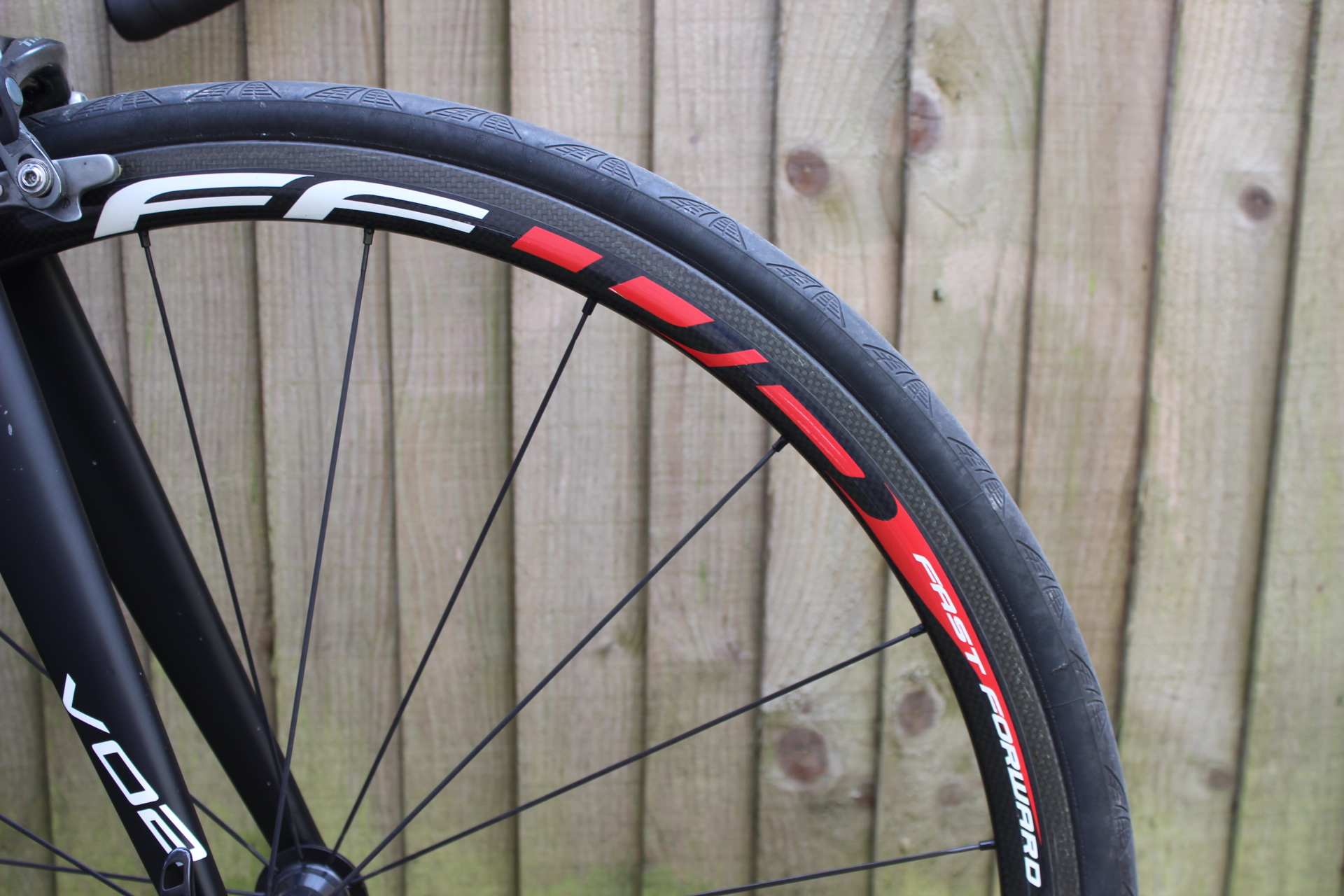
At 30mm deep, these rims certainly aren’t the kind that would be adopted by a time trial rider after a fast time on a drag-strip course, but they will lend a little assistance over a standard pair, and the 22.5mm rim will accommodate 23 or 25mm tyres.
Verdict on the Fast Forward F3R Full Carbon Clincher DT240 Wheelset

The Fast Forward F3R Full Carbon Clincher’s with DT240 hubs will set you back €2,098.00, that’s about £1,800. Clearly, they’re quite an investment. However, these quality wheels will drop the weight of your bike, and can offer a faster and more comfortable ride – making them a worthwhile upgrade. The exclusive Fast Forward braking surface does mean that these offer superior stopping power when compared to many others on the market – but it’s worth brushing up on your skills before testing them out on longer descents.
Interested? Check them out here.

